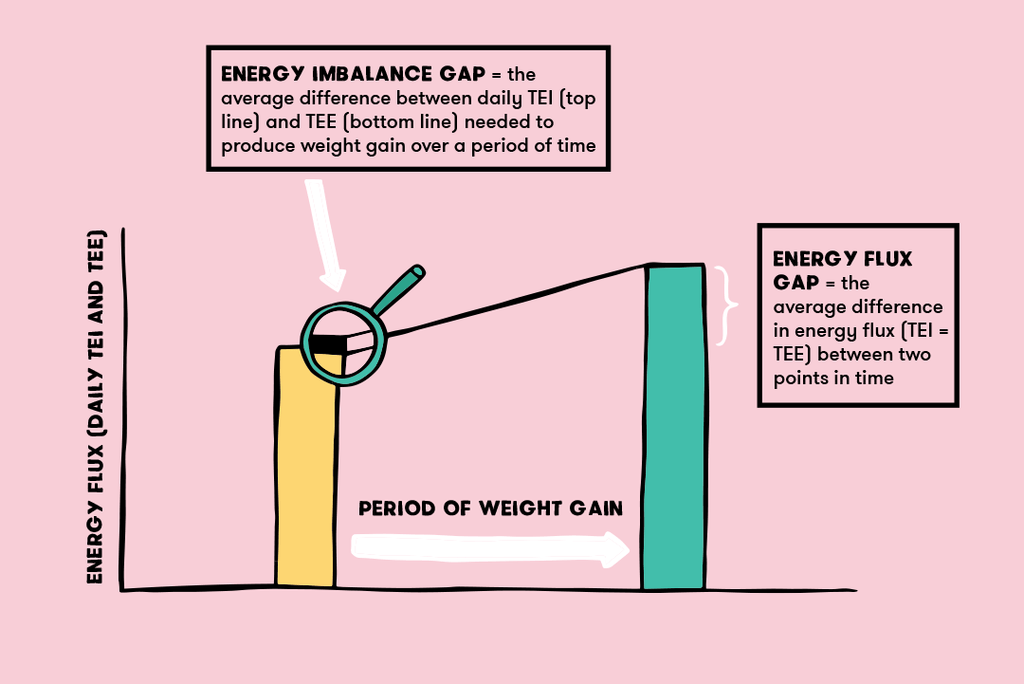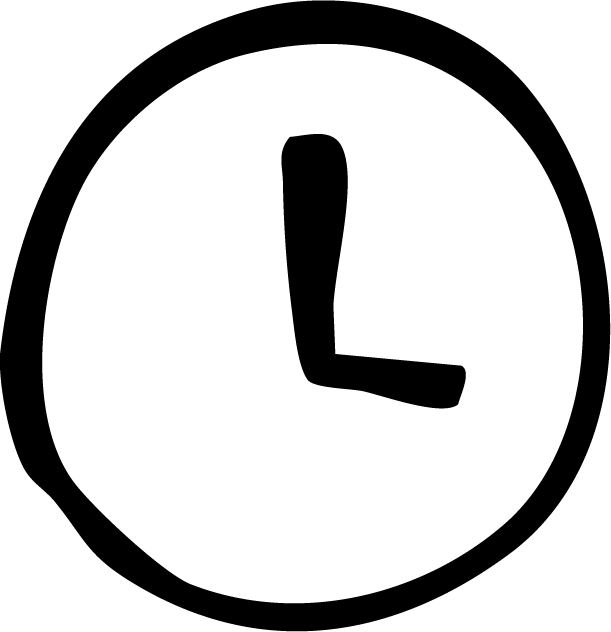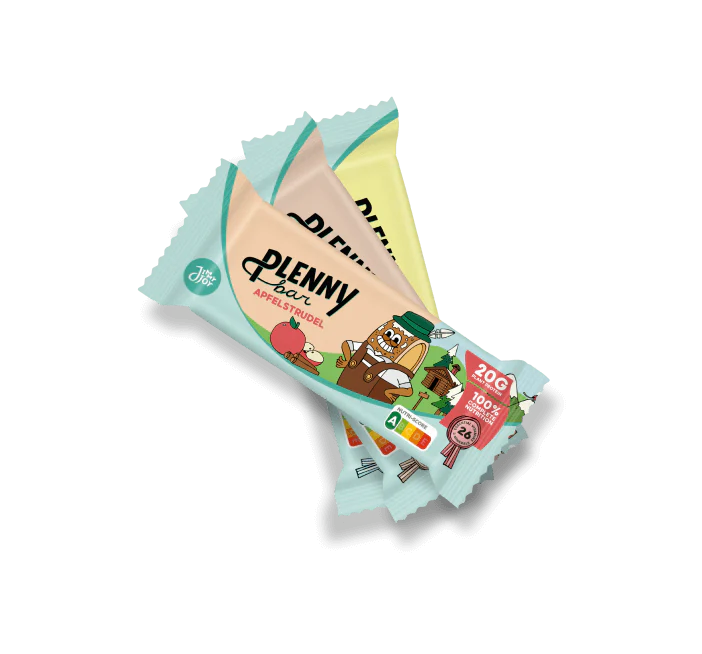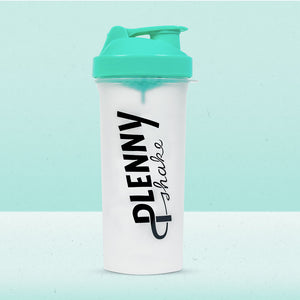- How do I lose fat? What’s the difference between fat loss and weight loss?
- How does fat loss work?
- How many calories do I need per day?
- Does it matter what I eat as long as I eat the right amount of calories?
- How do I count calories?
- Summary
So, you’ve got a few extra pounds, kilos, stone, or whatever you might be carrying with you?
Rest assured, you most likely can get rid of a bit of fat. But make no mistake.
Losing fat and losing weight are two different things.
In this guide, we are going to explain exactly the science of fat loss. You will understand what dietary and lifestyle habits you can adjust to ultimately reach a healthier and happier you.
Let’s dig in!
How do I lose fat? What’s the difference between fat loss and weight loss?
First of all, it is important to understand the difference between weight loss and fat loss.
Bodyweight measures total mass (fat, water, bone, muscles and organs).
Body fat just isolates the amount of adipose (fat tissue) and visceral fat (around vital organs).
It’s important to understand this distinction, because body fat is the most accurate indicator and predictor of well-being and disease, whereas body weight and health are not always negatively correlated, meaning you can weigh more than average, but be healthier than average too.

Now we got that out of the way, let’s move on to how losing body fat actually works.
How does fat loss work?
Body fat is gained when you have a positive energy balance for a prolonged period of time. This essentially means that your energy intake is higher than your energy expenditure - you’re eating too much and you’re not moving enough.
Research shows that individuals at a healthy weight must be able to maintain a zero energy balance, which means energy is equal to the energy expended. [1]

As shown in the image above, a study published by the American Journal of Clinical Nutrition assessed the change in calorie intake and average body weight from the 1970s to 2000. When comparing the change in average weight, the calculations equated almost exactly to the increased calorie intake. [2]
The point is that calories matter. Too much of them and you will find yourself gaining weight.
How many calories do I need per day?
You can work out how many calories you need to eat by working out your total daily energy expenditure (TDEE).
First, you have to calculate your basal metabolic rate (BMR), which is how many calories you burn at rest. This will depend on your gender, weight, height, and body fat percentage. This makes up the biggest component of your TDEE (approximately 70%).
Secondly, you have to calculate the other 30%. This is comprised of:
- non-exercise activity thermogenesis (NEAT). These are your random movements, walking to the kitchen to get coffee, using hand gestures, etc.
- the thermic effect of food (TEF) which is the number of calories burnt to metabolize food;
- and exercise activity thermogenesis (EAT) which accounts for the incremental temperature changes and effort used during exercise.
To calculate your TDEE you can use a TDEE calculator like this one.
Does it matter what I eat as long as I eat the right amount of calories?
Your TDEE tells you how many calories you burn per day, based on the above stats.
If you eat more than this, you will gain weight. If you eat less than this, you will lose weight.
Right?
Not necessarily.
For example, research shows if you choose to eat 2,000 calories worth of junk food you will metabolize this completely differently to 2,000 calories of nutrient-dense food like whole foods or our own Plenny Shake.
Simply said, you need to consume a balance of protein, fat, carbs and all 26 essential vitamins and minerals. Don’t avoid fat. It’s an essential nutrient. Fat doesn't make you gain fat but excess calories make you gain fat.
In fact, a study published by The American Journal of Clinical Nutrition found that in a clinical trial of overfeeding, participants were able to regulate energy balance better when they were active and consuming healthy foods. This is due to an increase in NEAT, EAT and TEF. [5]
So when it comes to what you should eat and what you should avoid, choose nutrient-dense food, and avoid high-sugar foods and alcohol.

If you have a hard time cutting out certain things from your diet then these practical tips might help:
- If you regularly drink pure fruit juice, start diluting it with water but stick to the same amount of total ml per serving. Instead of 500ml of Juice go for 300ml of Juice and 200ml of water. That’s a fantastic start!
- If you enjoy crunchy snacks such as crisps on a regular Basis try switching to air-popped popcorn and season it yourself.
- Sweet tooth? We feel you. Who can say no to a good Belgian truffle? The trick to long term weight loss is practicing awareness while you indulge. Instead of going for the full packet, because you may have been depriving yourself of them, allow yourself to enjoy one or two instead. Really enjoy it without guilt and then move on with your day.
It will get easier!
If you continuously decrease your caloric intake over time, studies show that your metabolism will downregulate and you will also require a smaller food intake due to the weight already lost. [6]
For example, if you were losing weight on 1,500 and you then lose 5 lbs, your weight loss macros (based on your BMR) might now only be 1,300. Compounded with this, after multiple months of restricting caloric intake, hormonal mechanisms that stimulate appetite increase making it more difficult to stick to the caloric goal. One example is a decrease in the hormone leptin, making you feel hungrier and less satiated. [7]

You can read more about this topic in our article on the science of feeling hungry.
How do I count calories?
Keeping track of your calorie intake is easier than you might think. It just takes a bit of preparation and determination.
It’s great to make meal planning a habit. You can think about what you want to eat and buy the right products that contain the right amount of calories your body needs. When you start doing this it can be difficult to make it work. But after a few weeks, you’ll notice how you become better at estimating the number of calories in the products you consume.
To make it easier to keep track of your caloric intake try using an app on your smartphone. An app, that is free of charge, is called MyFitnessPal. It details every macro and micronutrient that goes into your body. It calculates the percentages for you so you don’t have to spend time on complex calculations.
How Do You Lose Weight According to Science? 10 steps:
Here's a handy checklist to help you out:
- First, you calculate your total daily energy expenditure - the number of calories you burn a day.
- Take out some calories from your diet. For example, try to consume 500 calories less than you use per day for a week and you could lose almost half a kilo.
- Make sure you give your body all the essential nutrients it needs.
- Start your weight loss journey by setting clear goals and build it into your daily routine. You want to change your lifestyle and find something that works for you.
- Stay healthy during the process. Get enough sleep, calm your mind, and drink enough healthy liquids.
- It. Takes. Time. Make sure you plan for this to hit your goals realistically.
- Start tracking what you eat to make sure you don’t exceed this caloric target.
- Prevent empty calories. For example, take out that extra tablespoon of olive oil and leave out any sugary sodas.
- Give your body the time to adjust and stick with it. It will feel normal very soon.
- Focus on the right balance of nutrients and start increasing your activity and keep adjusting your caloric targets as you start to lose weight.
Dear Friends, keep in mind…
If you are currently embarking on a weight loss journey – kudos to you! It needs patience and stamina, especially if you have a longer way to go! So, well done for taking the first steps (or even leaps). There’s only one thing you need to remember:
Weight loss is not linear.
You may plateau – on the one hand, as already mentioned, due to metabolic adaptations while you lose weight. On the other hand because of water retention. We are saying this now so you don’t get too frustrated down the road, if this occurs at all!
Your body may retain water for several reasons, of which two are the most dominant:
- Hormonal (well, actually menstrual) changes for the ladies. You may know what we are saying – it’s that 1-2kg bloat out of absolutely NOWHERE that often shows on the scales.
- The other one is exercise-related. If you are training really hard, as in lifting weights or following certain high-intensity exercise protocols, your muscle mass will retain water due to regeneration.
Both of these situations pass. So, either don’t get on the scale right after these events or take looking at the scale lightly. You’ll get to where you want to be – just be patient and kind to your body and stay well hydrated!
Drinking enough water will actually help reduce unwanted water weight, since this downregulates the Hormone ADH. ADH keeps an eye on water balance and too much of this actually causes water retention!
That’s it! Oh, just one more tip because we’re all about scooping.
Bonus Tip: Measuring Spoons
Measuring spoons make your serving sizes as exact as possible. You will really know if you are putting exactly a tablespoon of olive oil in your meal or a quarter cup of cheese on your pasta.
If you want to make it even easier you can try one of the products below. Every smoothed out scoop of Plenny Shake are the exact nutrients your body needs in the exact amount.
We hope this helps with your calorie-counting!
Now, over to you!
Sources
- Kevin D. Hall, Steven B. Heymsfield, Joseph W. Kemnitz, Samuel Klein, Dale A. Schoeller, John R. Speakman. Energy balance and its components: implications for body weight regulation, The American Journal of Clinical Nutrition, Volume 95, Issue 4, April 2012, Pages 989–994, https://doi.org/10.3945/ajcn.112.036350
- Boyd A Swinburn, Gary Sacks, Sing Kai Lo, Klaas R Westerterp, Elaine C Rush, Michael Rosenbaum, Amy Luke, Dale A Schoeller, James P DeLany, Nancy F Butte, Eric Ravussin. Estimating the changes in energy flux that characterize the rise in obesity prevalence, The American Journal of Clinical Nutrition, Volume 89, Issue 6, June 2009, Pages 1723–1728, https://doi.org/10.3945/ajcn.2008.27061
- Ogden CL, Fryar CD, Carroll MD, Flegal KM. Mean body weight, height, and body mass index, United States 1960-2002. National Center for Health Statistics. Volume 27. October 2004. Pages 1-17. https://www.ncbi.nlm.nih.gov/pubmed/15544194
- Scott Howell and Richard Kones. “Calories in, calories out” and macronutrient intake: the hope, hype, and science of calories. American Journal of Physiology-Endocrinology and Metabolism. November 2017 313:5, E608-E612. https://doi.org/10.1152/ajpendo.00156.2017
- Hall, K. D., Heymsfield, S. B., Kemnitz, J. W., Klein, S., Schoeller, D. A., & Speakman, J. R. (2012). Energy balance and its components: implications for body weight regulation. The American journal of clinical nutrition, 95(4), 989–994. doi:10.3945/ajcn.112.036350.
- Benton, D., & Young, H. A. (2017). Reducing Calorie Intake May Not Help You Lose Body Weight. Perspectives on Psychological Science, 12(5), 703–714. https://doi.org/10.1177/1745691617690878
- Jeffrey M. Friedman, Leptin and the Regulation of Body Weight, The Keio Journal of Medicine, 2011, Volume 60, Issue 1, Pages 1-9, Released April 05, 2011, Online ISSN 1880-1293, Print ISSN 0022-9717, https://doi.org/10.2302/kjm.60.1.
 Everything You Need In One Meal
Everything You Need In One Meal
 Stay Full For 3-5 Hours
Stay Full For 3-5 Hours













 Product added to cart
Product added to cart





